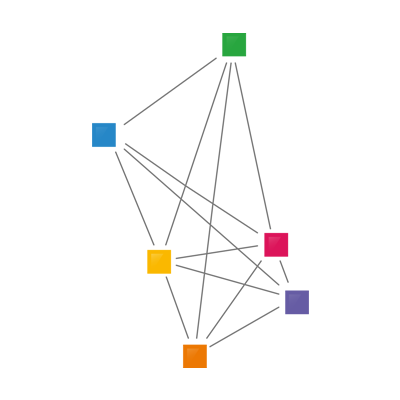How to facilitate a fast infrastructure deployment?
5 Apr 2019 15:00h - 15:45h
Event report
[Read more session reports and live updates from the 2nd Western Balkan Digital Summit]
The panel ‘How to facilitate a fast infrastructure deployment?’ moderated by Mr Mark Vasic (Senior Manager, International Regulatory Affairs, Deutsche Telekom AG) explored the notion that if a society wants to build good business models, it needs to create and maintain a good infrastructure. One of the moderator’s main questions for all the panellists was what they see as the biggest challenge for a faster development of infrastructure in the Western Balkans. Also, the conversation focused on the potential spaces for regional co-operation in light of infrastructure development.
Mr Haris Ceremida (CEO and Co-founder, Verso) noted that for several years they have been working with low-power networks, which he sees as a great potential for the Western Balkans, because it is profitable for investors. Verso works with full-mesh infrastructures, the sensors of which can work 10-15 years, which makes possibility for various the Internet of things (IoT) cases. He mentioned they work with smart parking, smart waste management, and agricultural networks. Ceremida addressed that the main issue about IoT networks is that they will not only work through telecommunication operators, but that there will be a competition among players with a whole new market, which still needs to be addressed by regulators. He mentioned the example of the city of Linz as an extraordinary example of a smart city with smart waste management, environmental data, and many other available open-data around the city. This alone is the reason Linz is one of the most popular cities for attracting start-ups. What he suggested in terms of collaboration in the region is focusing on services such public clouds, rather than backbone infrastructure, because of the specificities of different governments.
Addressing her opinion on the most valuable technologies for infrastructure, Ms Nives Sandri (Board Member, Nokia Affiliate in Croatia and North Macedonia; and Customer Team Head for Central Europe, Deutsche Telekom) noted that is extremely important to have high capacities and low latency in connections today, focusing in her talk on 5G. In Nokia’s opinion, it is important to start thinking about the new models that come with the technologies. 5G brings new verticals, and how this will come into the digital world depends on the users, as operators have their modes of operation. Her opinion is that everyone has a place in 5G. Sandri addressed the issues on infrastructure through an example that Nokia experienced with business cases. The only way to work with this big piece of infrastructure cake is with creative people and collaboration. Operators or industries alone can be fast, but administration needs to collaborate with both operators and industries. Certain regulations need to be done for this new paradigm, and not understanding its scope will lead to failure. In her opinion, Europe, in comparison to other markets, failed with 2G and 3G, but maybe at this moment it can learn from its past. There are already 30 commercial contracts, though further advancements will not work without investment. In terms of regional co-operation, she noted that universities can co-operate on software and added a few regional examples using existing open data.
Mr Nikolche Davcevski (Division Manager of Infrastructure Services, Seavus) presented the new business model that Saevus developed in the Balkans. He focused on a single point of contact, not limited to one technology and one vendor. Their customers are Telco, banks, while their model is successful enough that Western Balkan economies are interested in outsourcing their idea. The main problems they face as integrators, is picking the right experts and the right ideas from all those experts in the age of millennials.
Mr Juan Navas-Sabater (Lead ICT Specialist and Program Leader in European Union Member States, ECA) introduced the activities the World Bank is working on in the region. He explained that the main goal is helping their client countries increase economic benefits for the middle class, and improve infrastructure, regulations and access to different kinds of services. Specifically, in terms of digitalisation, the focus was always on access as well as e-government, developing ecosystems for digitalisation and innovation, as well as working across sectors, such as energy infrastructures and water supply infrastructures. Their digital dividends research from 2016 focused specifically on the sphere of the digital. In Balkans they have developed a digital agenda, enabling frameworks across the Balkans and looking at energy transmission lines for alternative broadband connectivity in the region. Currently, they are discussing with all the Western Balkan economies how to take advantage of this backbone, and in order to do so, additional infrastructure is needed. As a step in this process, they are collaborating to conduct tenders to employ infrastructure to areas which would never be provided funding without competing with existing funding. Most of the work that the World Bank does is focused on a regional perspective, to support regional integration, as well as the digital single market in how to support Western Balkan economies to reach this point. Coming back to the question of obstacles around infrastructure, he stated that the biggest issue is not investment, but the removal of regulatory barriers and changes in current regulation. He concluded with mentioning Edge, a project the World Bank is working on supporting governments to enable digital governance and help bring together all different government systems, so that people can do all public services online without needing to go to several different physical locations.
By Darija Medić
Related topics
Related event

